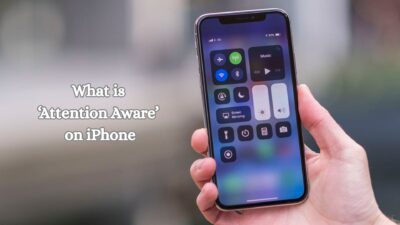If you are not careful while handling promotional emails, gift vouchers, and freebies, chances are that you will fall victim to a phishing attack and lose money or personal information to cybercriminals. Here’s what you should do if you get a freebie from Shein or any business at all.
A lot of online businesses do shell out freebies from time to time to their loyal customers or to attract new ones. We love it too. Who wouldn’t like a hundred-dollar gift card out of the blue? Well, hackers and cybercriminals are well aware of the general excitement built around freebies and they use it to steal from us. The Shein gift card email is just one example out of many.
What is the Shein gift card email scam?
It is an email that says, you can win a gift card from Shein (a Chinese fashion retailer) worth hundreds of dollars simply by completing a survey. Companies do spend a lot of money to get genuine customer feedback. So you think, why not check it out?
You are presented with a very professional-looking form full of questions about the brand, your experience with it, and so on and so forth. Some people who have received the email said, the form could take upwards of an hour to fill up. You think, wow! That took a lot of time. No wonder the company is offering a freebie for this job well done.
Toward the end of the form, you start getting personal questions – your name, your email ID, and the names of the people in your family, and your account information. You have already invested your trust and an hour in this, so, you go ahead and type in the information.
Last, they ask you to pay a nominal shipping fee to get your gift package. It’s a small fraction of the cost of the gift, it’s not like you’re starving or anything. So, you send it, expecting delivery within the week.
Right, it never arrives. And your loss amounts to more than just a dollar in shipping charges.
It’s called phishing!
Phishing is a type of online scam where a fraudster pretends to be someone else, like a bank or a company, in order to trick you into giving them your personal information.
They may send you an email or a message that looks like it’s from a legitimate source, but when you click on the link or enter your information, it goes straight to the scammer instead.
The Shein gift card email is a classic example of phishing and the scammers have done a rather nice job at creating the forms and making the whole presentation trust-inspiring.
Also read – Securing Business Emails: SPF, DKIM, and DMARC Explained
How to tell if an email is fake?
Your email provider usually has a bunch of filters to restrain malicious emails but it’s not failproof. In case you get an email that promises a freebie, start by distrusting it. Just assume that it’s fake and move ahead to confirm or discard your suspicion.
- Look at the email ID. Now, go to the official site of the company that has apparently emailed you and check their customer service or sales email IDs. Do they appear similar? If yes, good, but not good enough.
- Before you click anywhere on the email, drop a text to the company’s customer service executive inquiring about the email.
Usually, when fake emails start going out in the name of a company, they become aware of it, and they are quick to respond to any queries regarding that.
Do not click on a download link in the email. Do not click on anything in the email or open the form.
What to do if you have already been scammed
- Contact your bank or credit card provider asking for a refund of the money you sent. Do it even if the amount is small. It’s about stopping the chain of cyber crimes.
- Report the email to your email provider so that they can block the sender’s ID.
- If you have shared personal details, report the same to relevant authorities, so that they can clear your name if there is another cybercrime using your credentials.




